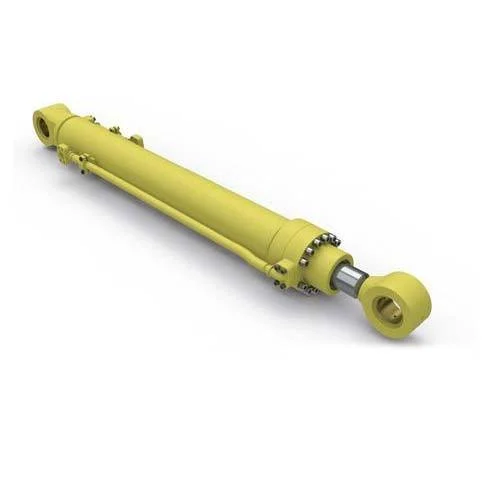Earth Moving Hydraulic Cylinder
₹10,800.0
| Usage/Application | Industrial |
| Max Pressure | 250 bar |
| Material Grade | Available in ST52,EN8 |
| Diameter | 63 mm |
| Surface Treatment | Color Coated |
- Description
- Additional information
- Reviews (0)
- Q & A
- Sustainability Remark
- More Offers
- Store Policies
- Inquiries
With an objective to fulfill the ever-evolving demands of our clients, we are engaged in offering a wide assortment of Earth Moving Hydraulic Cylinder.
Features:
- Fine finish
- Precisely designed
- Sturdiness
| brands | Spareage |
|---|
You must be logged in to post a review.
Q & A
Hydraulics can be a sustainable technology when designed and implemented properly. Here are some factors to consider regarding the sustainability of hydraulics:
Energy Efficiency: Hydraulics systems can be efficient in terms of energy conversion and utilization. They can transfer and transmit power efficiently over long distances without significant losses. However, the overall energy efficiency depends on various factors, such as system design, component selection, maintenance, and leakage prevention.
Renewable Energy Integration: Hydraulics can be integrated with renewable energy sources like wind and solar power to store energy or convert it into mechanical power. Hydraulic energy storage systems can help balance the intermittent nature of renewable energy generation and provide a reliable power supply when needed.
Environmental Impact: The environmental impact of hydraulics depends on several factors, including the type of hydraulic fluid used and the potential for leaks or spills. Traditional hydraulic fluids based on mineral oils can be harmful to the environment if leaked, but there are more environmentally friendly options available, such as biodegradable or water-based fluids. Additionally, proper maintenance and leakage prevention measures are crucial for minimizing environmental risks.
Lifecycle Assessment: A comprehensive assessment of the lifecycle impacts of hydraulic systems is necessary for evaluating their overall sustainability. This assessment considers factors like resource extraction, manufacturing processes, operational efficiency, maintenance requirements, and end-of-life disposal. By optimizing these aspects, the sustainability of hydraulic systems can be improved.
Waste Reduction and Recycling: Hydraulics systems can be designed to minimize waste generation and promote recycling. Components and materials can be selected for their recyclability, and systems can be designed for ease of disassembly and reuse. Recycling hydraulic fluids and components reduces the reliance on raw materials and helps mitigate environmental impact.
Application-Specific Considerations: The sustainability of hydraulics also depends on the specific application and context. In some cases, hydraulics might be the most efficient and sustainable option for tasks requiring high force, precise control, or remote operation. However, in other cases, alternative technologies like electric or pneumatic systems might be more appropriate.
Overall, the sustainability of hydraulics depends on various factors, including energy efficiency, environmental impact, lifecycle assessment, waste reduction, and application-specific considerations. By adopting best practices and advancements in hydraulic technology, it is possible to enhance the sustainability of hydraulic systems.
General Inquiries
There are no inquiries yet.

















Reviews
There are no reviews yet.